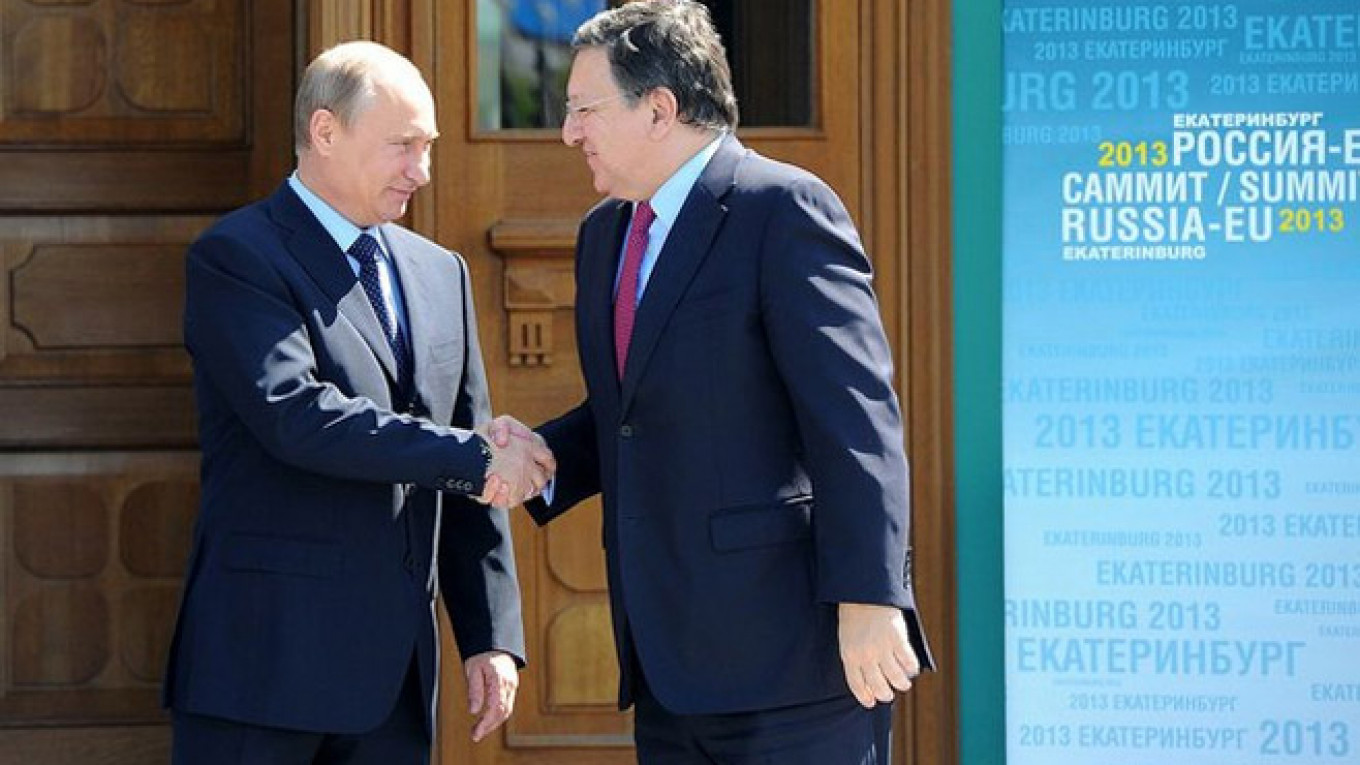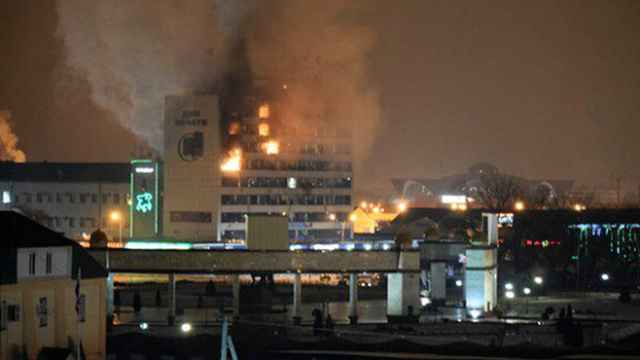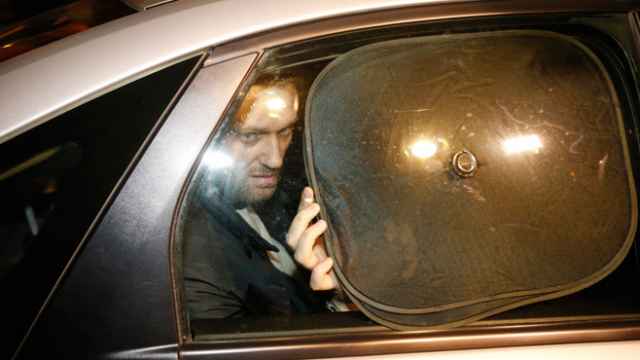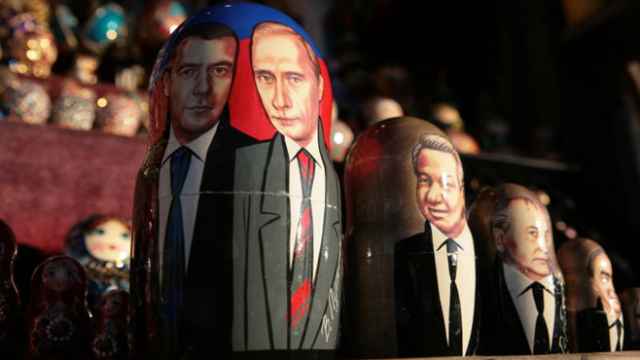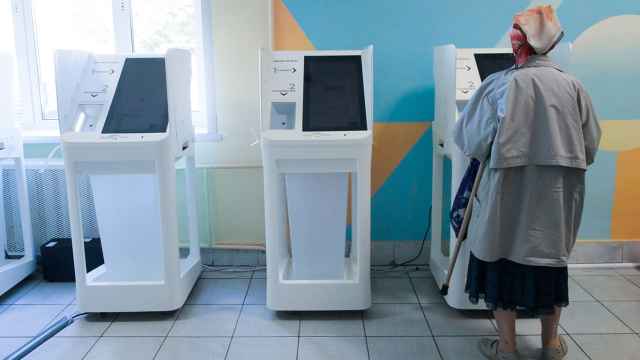Jose Manuel Barroso, who stepped down as head of the European Commission in October 2014, gave a spirited defense of the European Union's actions during the Ukraine crisis in an address to the Association for the Study of Nationalities at Columbia University on April 25.
Barroso described President Vladimir Putin's decision to annex Crimea as "the most blatant violation of international law since the end of World War II." Barroso noted that Russia had never raised the question of self-determination for Crimea with the international community in the previous two decades.
The fact that Putin suddenly adopted the language of national identity and religious difference was equally disturbing, cutting against the grain of European efforts to build ethnic and religious tolerance. "The EU is based on opposition to extreme nationalism," Barroso said, but now you have a powerful country promoting nationalist thinking.
Barroso suggested that the shift in Putin's position was a response to the rising protest movement in Russia from 2011-12, though he insisted that the EU did not try to promote regime change in Russia.
Barroso also argued that "Putin and the Russian leadership have not intellectually, emotionally and politically accepted the independence of Ukraine and the Baltic countries." Actual membership in the EU has never been on the table for Ukraine, since the EU is suffering from "enlargement fatigue," and "Ukraine is a systemically corrupt country."
But contrary to those who claim that Putin is irrational or "living in a different world," as German Chancellor Angela Merkel remarked in March 2014, Barroso said that "I understand Putin, but that does not mean I agree."
Barroso has met Putin 25 times — more times than he has met any other leader outside the EU — and spoken with him by phone many times more. Barroso continued: "Putin is a product of resentment at what happened to Russia and the Russian people in the 1990s." But Putin "has been successful in convincing many of the Russian people that there is a conspiracy of the West to weaken Russia."
Regarding sanctions, Barroso said they were "a step forward showing how much we care, even though we don't have any illusions that they change things fundamentally." The sanctions were a way of signaling the EU's "political condemnation" and have had a profound "psychological effect" beyond the impact on the Russian economy.
Barroso insisted that "Putin respects the EU. He may say the opposite but I know." The EU was a partner in the Minsk cease-fire process, and successfully brokered a deal under which Russia has continued to supply natural gas to Ukraine throughout the crisis.
The tradition of consensus in EU decision-making made it very hard for dissenting countries to derail the policy of sanctioning Russia — "some members did not agree, but would not oppose." A decision not to impose sanctions would have been much more divisive. The same logic applies when it comes to prolonging the sanctions when they expire in July. Barroso said that "a line has been crossed" and "there is a perception that we cannot easily go back to business as usual."
Some members of the audience criticized the EU for taking the military option off the table, thereby giving a green light to Russian aggression. Barroso replied that the EU is an aggregation of democracies, none of which are prepared to start a war with nuclear-armed Russia.
The European Union was fortunate to have a statesman of Barroso's caliber at its helm during the tumultuous events of the past decade. Certainly in his speech at Columbia he showed an impressive ability to grasp the logic of Russia's position while at the same time standing up for the political principles on which the European Union was founded.
Peter Rutland is professor of government at Wesleyan University.
A Message from The Moscow Times:
Dear readers,
We are facing unprecedented challenges. Russia's Prosecutor General's Office has designated The Moscow Times as an "undesirable" organization, criminalizing our work and putting our staff at risk of prosecution. This follows our earlier unjust labeling as a "foreign agent."
These actions are direct attempts to silence independent journalism in Russia. The authorities claim our work "discredits the decisions of the Russian leadership." We see things differently: we strive to provide accurate, unbiased reporting on Russia.
We, the journalists of The Moscow Times, refuse to be silenced. But to continue our work, we need your help.
Your support, no matter how small, makes a world of difference. If you can, please support us monthly starting from just $2. It's quick to set up, and every contribution makes a significant impact.
By supporting The Moscow Times, you're defending open, independent journalism in the face of repression. Thank you for standing with us.
Remind me later.


